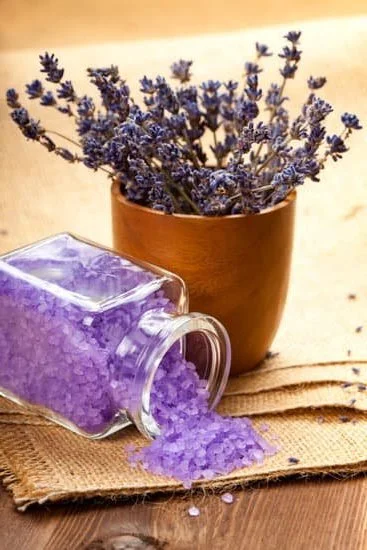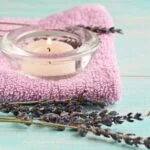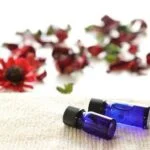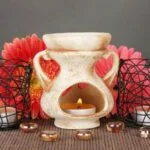Varicose veins can cause discomfort and impact daily life in numerous ways. Understanding what varicose veins are and how they develop is crucial in finding effective treatment options. This article will delve into the symptoms, hindrances, and potential solutions for varicose veins. Additionally, it will explore how aromatherapy can be a beneficial and natural approach to relieving the discomfort caused by varicose veins.
Varicose veins are enlarged, twisted veins that often appear blue or purple on the legs. They develop when the valves within the blood vessels malfunction, causing blood to pool instead of flowing efficiently back to the heart. This pooling of blood leads to increased pressure in the veins, resulting in their visible appearance on the skin’s surface.
The symptoms of varicose veins can range from mild to severe and may include pain, throbbing, itching, and swelling. These symptoms not only cause physical discomfort but can also hinder everyday activities such as standing or walking for long periods. In addition to the physical aspects, varicose veins can also have an impact on self-esteem due to their visible appearance. Many individuals with varicose veins may feel self-conscious about wearing certain clothing or showing their legs.
Traditional treatment approaches for varicose veins typically involve medical interventions like compression stockings, sclerotherapy, or surgery. While these methods can provide relief for some individuals, they may have limitations and potential side effects that make them less desirable options for others seeking a more natural solution.
Aromatherapy offers a different approach that harnesses the power of essential oils to promote better blood circulation and alleviate discomfort associated with varicose veins. By exploring various essential oils known for their benefits in treating varicose veins, this article aims to provide readers with an alternative option that they can consider as part of their vein health journey.
Traditional Treatment Approaches for Varicose Veins
Varicose veins are a common condition that affects many individuals, causing not only physical discomfort but also impacting their daily lives. Luckily, there are several traditional treatment options available to manage varicose veins and alleviate their symptoms.
- Compression Stockings: One of the most widely used treatments for varicose veins is wearing compression stockings. These specially designed stockings apply consistent pressure on the legs, helping to improve blood flow and reduce swelling. Compression stockings come in various compression levels, lengths, and styles to suit different needs and preferences.
- Sclerotherapy: Another popular medical treatment option for varicose veins is sclerotherapy. During this procedure, a solution is injected into the affected veins, causing them to collapse and fade over time. Sclerotherapy is minimally invasive and can be performed in an outpatient setting with little downtime.
- Surgery: In more severe cases of varicose veins, surgical intervention may be necessary. Surgical procedures such as vein ligation and stripping or endovenous laser treatment (EVLT) aim to remove or close off the damaged veins. These surgeries typically require longer recovery periods but have shown effective results in improving both the appearance and symptoms associated with varicose veins.
While these traditional treatment approaches can provide relief for varicose veins, they do come with limitations and potential side effects. Compression stockings may cause discomfort or skin irritation when worn for long periods, while sclerotherapy and surgery carry risks such as bruising, infection, or nerve damage. Additionally, these treatments may not address underlying issues related to poor circulation or weakened blood vessels.
It is here that alternative or complementary solutions like aromatherapy can play a significant role in managing varicose veins effectively without resorting to invasive procedures or medications with potential side effects. Aromatherapy utilizes essential oils with therapeutic properties that can improve blood circulation, reduce inflammation, and strengthen blood vessel walls for optimal vein health.
Unraveling the Power of Aromatherapy
Introduction to Aromatherapy
Aromatherapy is a holistic healing practice that involves the use of plant extracts, specifically essential oils, to promote physical and emotional well-being. Dating back thousands of years, this ancient practice has been used by various cultures around the world for its therapeutic benefits. Aromatherapy works by stimulating our sense of smell, which in turn triggers powerful responses within our bodies.
How Aromatherapy Works
When we inhale essential oils, the aromatic molecules travel through the nasal passages and stimulate the olfactory system. This system is directly connected to the limbic system in our brain, which plays a crucial role in regulating emotions and memories. The limbic system also influences various physiological processes such as heart rate, blood pressure, and hormone production.
Improving Blood Circulation with Aromatherapy
One of the key mechanisms behind how aromatherapy can benefit varicose veins is its ability to improve blood circulation. Essential oils have been shown to have vasoactive properties, meaning they can help dilate or constrict blood vessels. Some essential oils like lavender and cypress have been found to promote vasoconstriction, which helps alleviate symptoms associated with varicose veins such as swelling and pain.
Additionally, certain essential oils can also help strengthen blood vessel walls. This is particularly important for individuals with varicose veins because weakened or damaged vessel walls contribute to their development. Essential oils like cypress contain compounds that have been found to strengthen collagen fibers in blood vessels, making them less prone to bulging or leaking.
Essential Oils for Varicose Veins Treatment
There are a variety of essential oils that can be utilized in aromatherapy for the treatment of varicose veins. Lavender oil, known for its soothing and calming properties, can reduce inflammation and relieve discomfort associated with varicose veins when applied topically or diffused into the air.
Cypress oil, with its astringent and vasoconstrictive properties, is particularly effective in improving circulation and reducing swelling when applied as a massage oil or added to bathwater. Helichrysum essential oil, on the other hand, is renowned for its skin-regenerating properties and can help minimize the appearance of varicose veins when applied topically.
Lavender Essential Oil
Lavender essential oil is one of the most popular and versatile essential oils used in aromatherapy. Its soothing and calming properties make it an excellent choice for treating varicose veins. The scent of lavender can help alleviate stress and anxiety, which are often associated with the pain and discomfort caused by varicose veins.
Reducing Inflammation and Swelling
One of the main benefits of using lavender essential oil for varicose veins is its ability to reduce inflammation and swelling. This is particularly important as inflammation can worsen the appearance of varicose veins and cause additional discomfort. Lavender oil contains anti-inflammatory compounds that work to soothe the affected area, improving blood flow and reducing swelling.
There are several ways to apply lavender essential oil for varicose veins. One method is to add a few drops of lavender oil to a carrier oil, such as jojoba or coconut oil, and gently massage it into the affected area. This helps promote better circulation while providing relief from any pain or discomfort.
Another option is to add a few drops of lavender oil to a warm bath and soak in it for about 15-20 minutes. This allows the healing properties of lavender to be absorbed through the skin, providing overall relaxation and relief.
Application Methods and Usage Recommendations
To get the maximum benefits from lavender essential oil for varicose veins, it’s important to use it properly. When using topically, always dilute lavender oil with a carrier oil before applying it directly to the skin. This helps prevent any adverse reactions or sensitivity issues.
For massage purposes, mix around 5-10 drops of lavender essential oil with 1 ounce (30 ml) of carrier oil. Gently massage this blend onto your legs using upward strokes towards your heart. Repeat this process daily or as needed for best results.
Alternatively, you can create a hot or cold compress using lavender oil. Simply add a few drops of lavender oil to warm or cold water, soak a clean cloth in the mixture, and apply it directly to the affected area. Leave it on for 15-20 minutes to allow the oil to penetrate the skin.
It’s important to note that while lavender essential oil can provide relief and improve the appearance of varicose veins, it may not eliminate them completely. Consistency and patience are key when using aromatherapy as a natural remedy for this condition.
Cypress Essential Oil
Varicose veins can be a source of discomfort and insecurity for many individuals. While there are traditional medical treatments available, such as compression stockings, sclerotherapy, and surgery, they may not always provide satisfactory results or may come with limitations and potential side effects. This is where alternative or complementary solutions like aromatherapy can play a role in managing varicose veins. One particular essential oil that has shown promise in this area is cypress essential oil.
Cypress essential oil is derived from the branches of the cypress tree through steam distillation. It has long been recognized for its therapeutic properties in improving circulation and strengthening blood vessel walls. The oil contains compounds that have vasoconstrictive and astringent effects, making it an ideal choice for reducing the appearance of varicose veins and improving overall blood flow.
One of the key benefits of cypress essential oil is its ability to support healthy blood circulation. By promoting vasoconstriction, it helps to constrict the blood vessels, allowing for improved blood flow and reducing pooling in the veins. Additionally, cypress oil strengthens the walls of blood vessels, preventing them from becoming weak or dilated.
| Properties | Benefits |
|---|---|
| Astringent | Helps to constrict blood vessels |
| Vasoconstrictive | Promotes improved blood flow |
| Antispasmodic | Relieves cramping and discomfort associated with varicose veins |
To use cypress essential oil for varicose veins, it is recommended to dilute the oil with a carrier oil, such as coconut or jojoba oil, before applying to the affected areas. Massage gently in an upward motion towards the heart to encourage blood circulation. Another method is to add a few drops of cypress oil in a warm bath and soak your legs for about 15 minutes.
It is important to note that while aromatherapy can be a beneficial addition to traditional treatments for varicose veins, it should not replace professional medical advice. If symptoms worsen or persist, it is always advisable to consult with a healthcare practitioner or vein specialist.
Helichrysum Essential Oil
Varicose veins can be unsightly and cause discomfort, but there are natural remedies that can help alleviate their appearance and symptoms. One such remedy is helichrysum essential oil, which has been used for centuries for its healing properties. Known as the “golden oil,” helichrysum essential oil offers a range of benefits specifically targeted towards varicose veins.
Helichrysum essential oil is derived from the flowers of the Helichrysum italicum plant, which grows in Mediterranean regions. This oil has powerful skin regeneration abilities, making it an excellent choice for treating varicose veins. It contains compounds such as alpha-pinene and gamma-curcumene that promote blood circulation and reduce inflammation.
When applied to affected areas, helichrysum essential oil helps strengthen the walls of blood vessels. This results in improved blood flow and reduced swelling. Additionally, helichrysum essential oil has analgesic properties that can relieve pain associated with varicose veins.
To use helichrysum essential oil for varicose veins, it is recommended to dilute it with a carrier oil like coconut or jojoba oil before topical application. A few drops mixed with the carrier oil can be gently massaged into the affected area twice a day. It’s important to note that consistency is key when using aromatherapy for vein health, so regular application over time may be necessary to see visible improvements.
In addition to helichrysum essential oil, there are other essential oils that can be beneficial in treating varicose veins. Lavender essential oil has soothing properties and can reduce inflammation, while cypress essential oil acts as a vasoconstrictor and strengthens blood vessel walls. Creating custom aromatherapy blends using these oils can further enhance their effects on varicose veins.
| Essential Oil | Benefits |
|---|---|
| Lavender | Soothing, reduces inflammation |
| Cypress | Vasoconstrictor, strengthens blood vessel walls |
| Helichrysum | Promotes skin regeneration, improves blood flow |
By incorporating helichrysum essential oil and other beneficial oils into a daily self-care routine, individuals with varicose veins can take control of their vein health in a natural and holistic way. With consistent use and patience, they can experience visible improvements in the appearance of varicose veins and find relief from discomfort. Embracing the natural healing power of aromatherapy is an empowering choice for those seeking a non-invasive approach to managing varicose veins.
DIY Aromatherapy Blends for Varicose Veins
Aromatherapy is a powerful and natural way to alleviate the symptoms of varicose veins and promote healing. By creating your own DIY aromatherapy blends, you can customize treatments to suit your specific needs and preferences. These blends harness the therapeutic properties of essential oils to reduce inflammation, improve blood circulation, and minimize the appearance of varicose veins.
One popular DIY aromatherapy blend for varicose veins includes lavender essential oil. Lavender oil is not only known for its beautiful scent but also for its soothing and calming properties. It can effectively reduce inflammation and swelling associated with varicose veins, providing relief from discomfort.
To create this blend, combine 10 drops of lavender essential oil with 2 tablespoons of carrier oil such as sweet almond or coconut oil. Gently massage the blend onto the affected areas using circular motions twice a day for best results.
Another essential oil that is beneficial for varicose veins is cypress essential oil. Cypress oil has astringent and vasoconstrictive properties that can strengthen blood vessel walls and improve circulation. To make a DIY blend with cypress oil, mix 9 drops of cypress essential oil with 1 tablespoon of jojoba or grapeseed oil. Apply this mixture to the affected areas using gentle upward strokes every morning and evening.
In addition to lavender and cypress oils, helichrysum essential oil can also be included in DIY aromatherapy blends for varicose veins. Helichrysum oil is particularly effective in promoting skin regeneration and reducing the appearance of varicose veins. Combine 6 drops of helichrysum essential oil with 1 tablespoon of rosehip seed or argan oil to create a soothing blend. Massage it onto the affected areas twice daily, focusing on any visible veins.
When creating your DIY aromatherapy blends, it’s important to store them properly to maintain their potency. Keep the blends in dark glass bottles and store them in a cool, dry place away from direct sunlight. Before each use, shake the bottle gently to mix the oils thoroughly.
By incorporating these DIY aromatherapy blends into your daily routine, you can experience the natural healing power of essential oils and find relief from the discomfort of varicose veins. Remember to be consistent with your treatments and practice patience as results may take time. Embrace the world of aromatherapy and take control of your vein health today.
Lifestyle Tips for Supporting Aromatherapy Treatment of Varicose Veins
Varicose veins can be a frustrating and uncomfortable condition to deal with. While aromatherapy can provide relief and promote healing, it is important to incorporate lifestyle changes that can support its effectiveness. By making a few simple adjustments to your daily routine, you can enhance the benefits of aromatherapy treatment for varicose veins.
- Regular Exercise: Engaging in regular physical activity is crucial for promoting blood circulation and preventing the development of varicose veins. Exercise helps strengthen the muscles in your legs, which in turn supports healthy blood flow. Aim for activities that target the calf muscles, such as walking, biking, or swimming.
- Maintain a Healthy Weight: Excess weight can put added pressure on your veins, leading to the development or worsening of varicose veins. By maintaining a healthy weight, you reduce stress on your blood vessels, allowing for better circulation and improved vein health.
- Elevate Your Legs: Elevating your legs above heart level whenever possible can help alleviate discomfort and swelling caused by varicose veins. This position promotes proper blood flow back towards the heart and reduces pooling in the lower extremities.
- Avoid Prolonged Standing or Sitting: Standing or sitting for long periods of time can contribute to poor circulation and worsen the symptoms of varicose veins. If your job requires extended periods of standing or sitting, try taking short breaks to walk around and stretch your legs.
- Wear Compression Stockings: In addition to using aromatherapy, wearing compression stockings can provide additional support for varicose veins by improving blood flow back towards the heart. These stockings apply gentle pressure on the legs, reducing swelling and discomfort.
- Follow a Balanced Diet: A nutritious diet rich in fiber, antioxidants, and essential nutrients is beneficial for overall vein health. Incorporate foods like fruits, vegetables, whole grains, nuts, seeds, and lean proteins into your meals. Stay hydrated by drinking plenty of water throughout the day.
By implementing these lifestyle tips, you can complement the effects of aromatherapy in treating varicose veins. Remember to consult with a healthcare professional before trying any new exercises or making drastic dietary changes, especially if you have underlying health conditions. Embrace a holistic approach to vein health and discover the power of aromatherapy in conjunction with these supportive lifestyle choices.
Conclusion
In conclusion, aromatherapy offers a natural and holistic approach to managing varicose veins. As discussed throughout this article, traditional treatment approaches for varicose veins can be limited in their effectiveness and may come with potential side effects. However, using essential oils such as lavender, cypress, and helichrysum in aromatherapy can provide soothing and healing benefits for varicose veins.
One of the main advantages of choosing aromatherapy for varicose veins is that it harnesses the power of nature without any harsh chemicals or invasive procedures. Essential oils like lavender have anti-inflammatory properties that can reduce swelling and discomfort associated with varicose veins. Cypress oil, on the other hand, helps strengthen blood vessel walls and improve circulation. Helichrysum oil promotes skin regeneration and aids in reducing the appearance of varicose veins.
Furthermore, embracing aromatherapy allows individuals to take control of their vein health and explore a world of natural healing. By creating custom blends or following DIY recipes provided in this article, people can personalize their aromatherapy experience based on their specific needs and preferences. Additionally, making lifestyle modifications like incorporating regular exercise and following a balanced diet can further support the effectiveness of aromatherapy in managing varicose veins.
Frequently Asked Questions
Do essential oils really help varicose veins?
The effectiveness of essential oils in treating varicose veins is a topic of debate within the medical community. Some individuals claim that certain essential oils, when applied topically or used as part of a massage oil, can provide relief for varicose veins.
However, scientific evidence supporting these claims is limited and inconsistent. While some essential oils may have anti-inflammatory properties that could potentially reduce swelling and pain associated with varicose veins, it is important to consult with a healthcare professional before using them as a treatment option.
What are the benefits of lavender oil on varicose veins?
Lavender oil is often touted as having potential benefits for varicose veins due to its calming and soothing properties. It is believed that lavender oil may help relieve discomfort and reduce inflammation associated with varicose veins.
Although there are no concrete scientific studies specifically examining the effects of lavender oil on varicose veins, its potential therapeutic benefits lie in its ability to promote relaxation and possibly alleviate some symptoms related to venous insufficiency.
What naturally helps varicose veins?
A few natural remedies may possibly help improve the symptoms of varicose veins or slow down their progression. Regular exercise can be beneficial as it helps improve circulation and strengthens the muscles that support healthy blood flow in the legs. Maintaining a healthy weight through a balanced diet can also reduce the strain on veins, as excess body weight puts additional pressure on the lower extremities.
Elevating the legs above heart level periodically throughout the day can aid in reducing swelling and promoting better blood circulation. Lastly, wearing compression stockings or sleeves can provide external support to veins, potentially alleviating symptoms such as pain and swelling accompanying varicose veins. However, it’s always important to consult with a healthcare professional for personalized advice based on individual circumstances and severity of varicose vein symptoms.

Are you looking for a natural way to improve your health and wellbeing?
If so, aromatherapy may be the answer for you.





